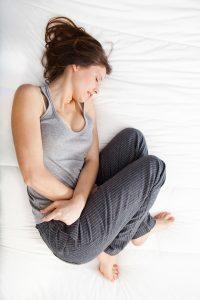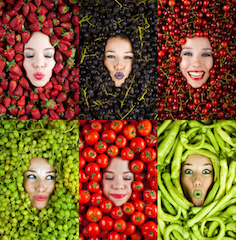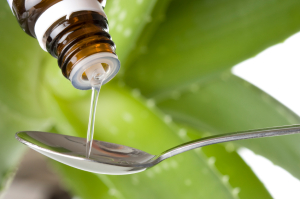Is PMS normal?
With around 95% of women experiencing some level of premenstrual syndrome (PMS) it’s easy to understand why it tends to be thought of as normal, and it is – to a degree. The fluctuation of hormones that occurs over a normal menstrual cycle understandably would lead to mild noticeable symptoms a day or two before your period. This does not mean that women should suffer from PMS symptoms that disrupts the quality of life due to their duration or severity. If you’ve experienced this you know how disruptive it can be to have a reduced ability to cope with day-to-day life due to physical, emotional and mental symptoms.
What is PMS?
PMS includes an array of physical and psychological symptoms, which start anywhere up to 14 days before your period (menstruation) and last until day one or two of your period. These may include some or all of:
|
|
|
|
|
|
|
|
|
|
|
|
|
|
|
|
|
|
It can be a real roller coaster of a time where everything seems harder to do and stressful situations can become overwhelming, yet we are expected to push on with life and its demands.
What can be done about PMS?
The good news is that a lot can be done to relieve PMS symptoms – you don’t have to suffer from every cycle. While it can be a good idea to go gently on yourself in the days before menstruation, planning for extra rest and reflection, PMS doesn’t have to rule your life. You might even find that your period comes without any trouble or discomfort – yippee!
It is not fully understood what causes PMS but it appears that the hormones estrogen and progesterone play a role, as well as inflammation, which impact levels of the calming, feel-good neurotransmitters GABA and serotonin. The relationships between these factors are complex but it is clear that women respond to treatments that reduce inflammation, support GABA and serotonin, and balance hormones.
How to end PMS symptoms:
Exercise
Regular exercise is a wonderful modulator of hormones that impact PMS, plus it boosts endorphins and other feel-good chemicals. According to research, 60 minutes of aerobic exercise three times weekly can reduce both physical and psychological symptoms of PMS by more than 50%. So if you aren’t moving much already, this could be a game-changer for you.
Although an exercise routine can be hard to make time for or get motivated to do, I have found that any level of activity you can do gives better results than none, so it’s highly worth it. Find something you love doing and it will be much easier.
Diet
Anti-inflammatory foods to include:
- Omega-3 fats – the strongest sources are oily fish like anchovies, salmon, sardines, and trout. Vegetarian sources include chia seeds/oil, flax seeds/oil and walnuts – eat these daily.
- Selenium – this wonderful mineral also supports healthy progesterone levels. Brazil nuts are the best source but those grown in Australian soils won’t have much selenium (our soils are deficient) so opt for those grown elsewhere and eat 5 per day.
- Fruits and veggies – include all the colours of the rainbow, 5-7 serves of veggies per day and 2 fruit is ideal.
- Spices – aim to include turmeric and ginger in your diet daily. Add to cooking or make a tea (see below for a turmeric latte recipe). Other spices are also beneficial so look for recipes that include a variety of ground or whole spices.
Turmeric latte
Combine one cup of coconut/almond/cashew or organic cows milk with 1 tsp organic turmeric powder or freshly grated turmeric, a pinch of ground black peppercorns, ¼ tsp cinnamon, ¼ tsp honey or coconut sugar, 1 tsp coconut oil and a pinch of vanilla bean paste or powder. Heat gently in a saucepan for about 5 minutes or until it reaches your desired temperature but don’t let it boil as it may split. Strain if using the freshly grated turmeric.
Inflammatory foods to avoid:
- Sugar and refined carbohydrates including white flour products, chips, sweets, lollies, cakes and high amounts of natural sugars like fruit, honey, coconut sugar, dates and maple syrup (a little bit is ok).
- Dairy – dairy can be inflammatory for some people. Try an 8 week dairy-free trial to see if symptoms improve or stick to small amounts of goat’s, sheep, Jersey cow and buffalo milk products (organic where possible).
- Alcohol – limit this to no more than four standard drinks per week and no more than two in any one sitting. Try to steer clear in the week before your period.
- Processed foods – limit anything in a packet and opt for as much food as possible in it’s whole, natural form
- Deep-fried foods or foods fried at high temperatures – use olive or coconut oil for baking and frying and don’t let them heat past smoking point.
Natural medicines for PMS
There is a large range of herbs and nutrients that relieve PMS that we can’t do justice in this article but here are some of my favourites:
- Vitamin B6
This anti-inflammatory vitamin can work wonders for PMS. It is a key ingredient for your body to make the calming neurotransmitter GABA and the hormone progesterone, which also stimulates GABA. It’s best to have a naturopath determine the safest and effective dose of B6 for you. - Magnesium
Magnesium is also needed to make GABA and this mineral is also anti-anxiety and helps muscle relaxed, having an overall relaxing effect on the body and the uterus. - St John’s Wort
This herb supports serotonin production and is a “life-saver” for mood, anxiety and getting restful sleep during the pre-menstrual phase. It’s not safe to take with anti-depressant medication because it may push your serotonin too high, which can be very dangerous. If you are on any other medication, see your doctor or naturopath before taking St John’s Wort as this herb reduces the effect of many medications. - Vitex agnus-castus (Chaste tree)
Chaste tree greatly reduces physical and psychological PMS symptoms including breast tenderness and PMS mood swings. If you have irregular or infrequent periods it may not be the best choice for you so see your naturopath before starting if this is you.
In my clinical experience, it’s often a combination of diet, lifestyle, herbs, and nutrition that makes a huge difference to PMS symptoms. Consult with your health professional and discuss these PMS tips as some may not be appropriate for your unique health situation while others may be the missing link to achieving a great result – remember, you don’t have to suffer each cycle, you just need the right guidance.
You may also be interested in
- Information about our Fertility Consultant, Nurse, Midwife, Lecturer & Author (28 yrs experience)
- What is PCOS?
- What Causes PCOS?
- PCOS Diet
- 7 Ways to Boost Fertility Naturally
- Get Your Diet Right For Fertility
- Top 5 Tips for Avoiding Chemicals That Harm Fertility
- What’s your 5 Day Fertile Window?
- PMS Treatment




